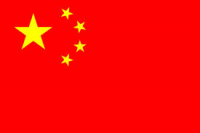 Firms are taking up insurance to compensate for the break-up of acquisitions by governments.
Firms are taking up insurance to compensate for the break-up of acquisitions by governments.
China Topix reported that China saw a “sharp increase in its overseas investment” last year, spending a record $45.6 billion (€43 billion) on foreign acquisitions, with this “surge” leading to “resistance from foreign countries” and “the breakdown of some very prominent deals”.
As a result, Chinese firms “are now increasingly targeted by foreign governments for their investment practices”, and the site noted that such examples including Fujian Grand Chip Investment’s attempt to buy German chip company Aixtron, which was “vehemently opposed by the US government” and which failed to “receive the approval” of the US’ Committee on Foreign Investment (CFIUS).
Another deal was rejected after US regulators objected, with this $3 billion (€2.8 billion) deal seeing a “Chinese consortium” try to buy the “lighting unit” of Dutch company Philips, and China Topix pointed out that “in the wake of such stern actions from western governments”, companies in China “are now opting for new insurance products, which may compensate Chinese groups for losses incurred from such failed deals”.
It cited reporting by the Financial Times, which claimed that several insurance groups led by Aon are “now offering insurance products, which compensate for the ‘reverse break-up’ free”, and this product is expected to be “in high demand as the upcoming Trump administration is expected to further tighten the scrutiny of Chinese companies”. Aon has also claimed that the products “will help the Chinese companies in making more competitive bids for foreign companies”.
